Quincy Jones death: Music titan who worked with Michael Jackson and Frank Sinatra dies, aged 91
Legendary producer was genius behind three Michael Jackson albums, helping him become biggest pop star of all time
Your support helps us to tell the story
From reproductive rights to climate change to Big Tech, The Independent is on the ground when the story is developing. Whether it's investigating the financials of Elon Musk's pro-Trump PAC or producing our latest documentary, 'The A Word', which shines a light on the American women fighting for reproductive rights, we know how important it is to parse out the facts from the messaging.
At such a critical moment in US history, we need reporters on the ground. Your donation allows us to keep sending journalists to speak to both sides of the story.
The Independent is trusted by Americans across the entire political spectrum. And unlike many other quality news outlets, we choose not to lock Americans out of our reporting and analysis with paywalls. We believe quality journalism should be available to everyone, paid for by those who can afford it.
Your support makes all the difference.Quincy Jones, the pioneering musician, record producer and titan of American entertainment, has died aged 91.
His publicist Arnold Robinson said he passed away last night surrounded by his family at his home in the Bel Air area of Los Angeles. No cause of death was given.
“Tonight, with full but broken hearts, we must share the news of our father and brother Quincy Jones’s passing,” the family – which includes his actor daughter Rashida Jones, who played Karen Filippelli in The Office – said in a statement. “And although this is an incredible loss for our family, we celebrate the great life that he lived and know there will never be another like him.”
The legendary producer, who won a total of 28 Grammy Awards (and was the most nominated artist after Beyoncé and Jay-Z), enjoyed a career spanning more than seven decades, working with musicians including Michael Jackson, Frank Sinatra, Count Basie and Celine Dion.
For Jackson, he produced the albums Off the Wall, Thriller and Bad, helping him become the most successful pop artist of all time. He arranged songs for jazz greats such as Count Basie, produced dozens of film scores, and once played trumpet in Elvis Presley’s band. For the better part of the Eighties and Nineties, it was unlikely that music fans would not own at least one record with Jones’s name on it.
Jones’s father was born to a Welsh slave owner and one of his female slaves; his mother’s family were also descended from slave owners. Jones himself was born and raised in Chicago, where he rang with gangs on the South Side. An early introduction to music came from a neighbour playing the piano, which he began to play himself aged seven, and from his mother’s singing.
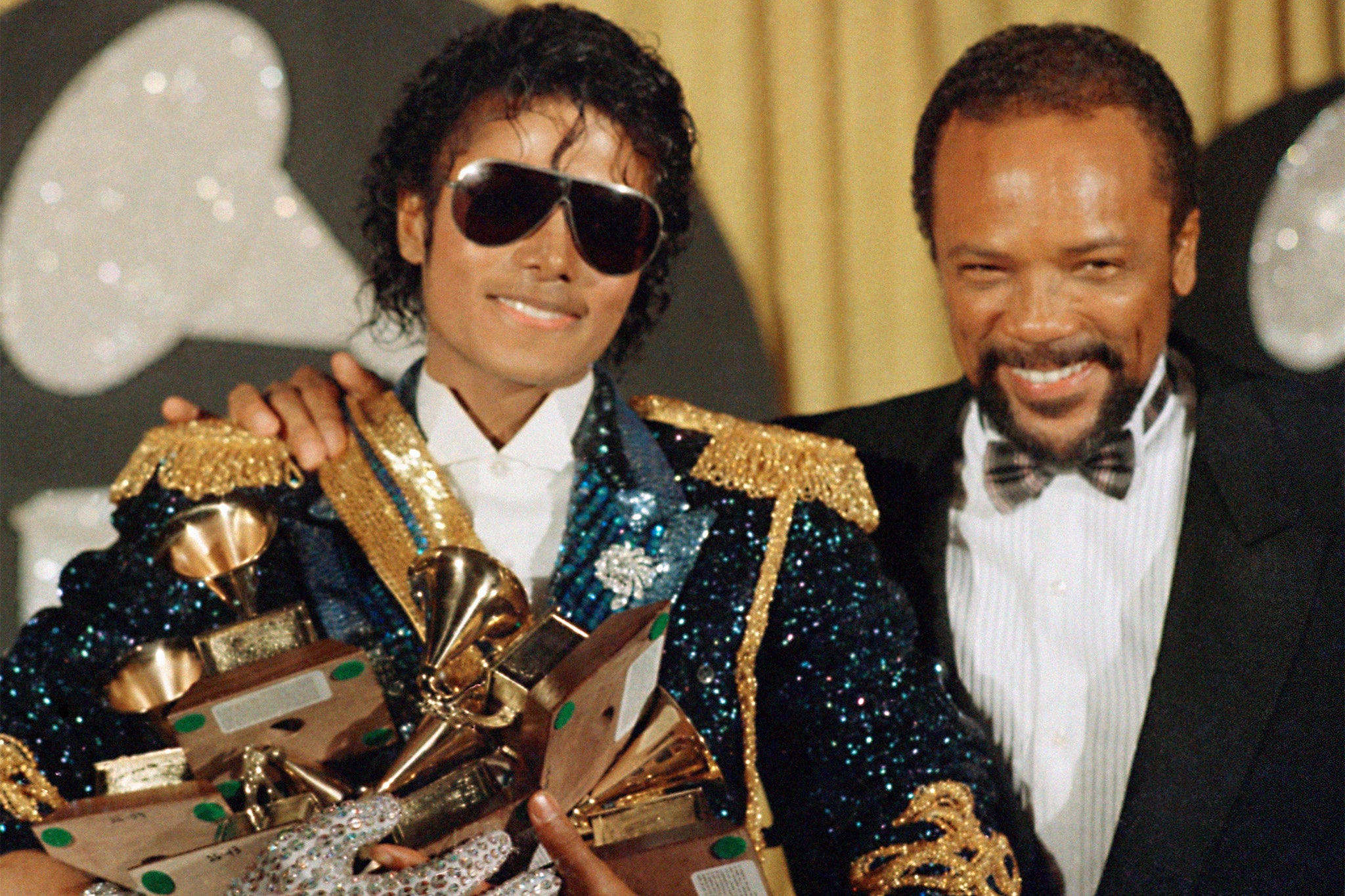
After his parents divorced, he moved to Washington state with his father, learning to play the drums and a range of brass instruments while in a high-school band. He briefly played in a band with a young Ray Charles in Seattle, aged 14, before studying music at Seattle University. He spent the Fifties touring with jazz bandleader Lionel Hampton, meeting cultural icons including James Baldwin, Josephine Baker and Pablo Picasso.
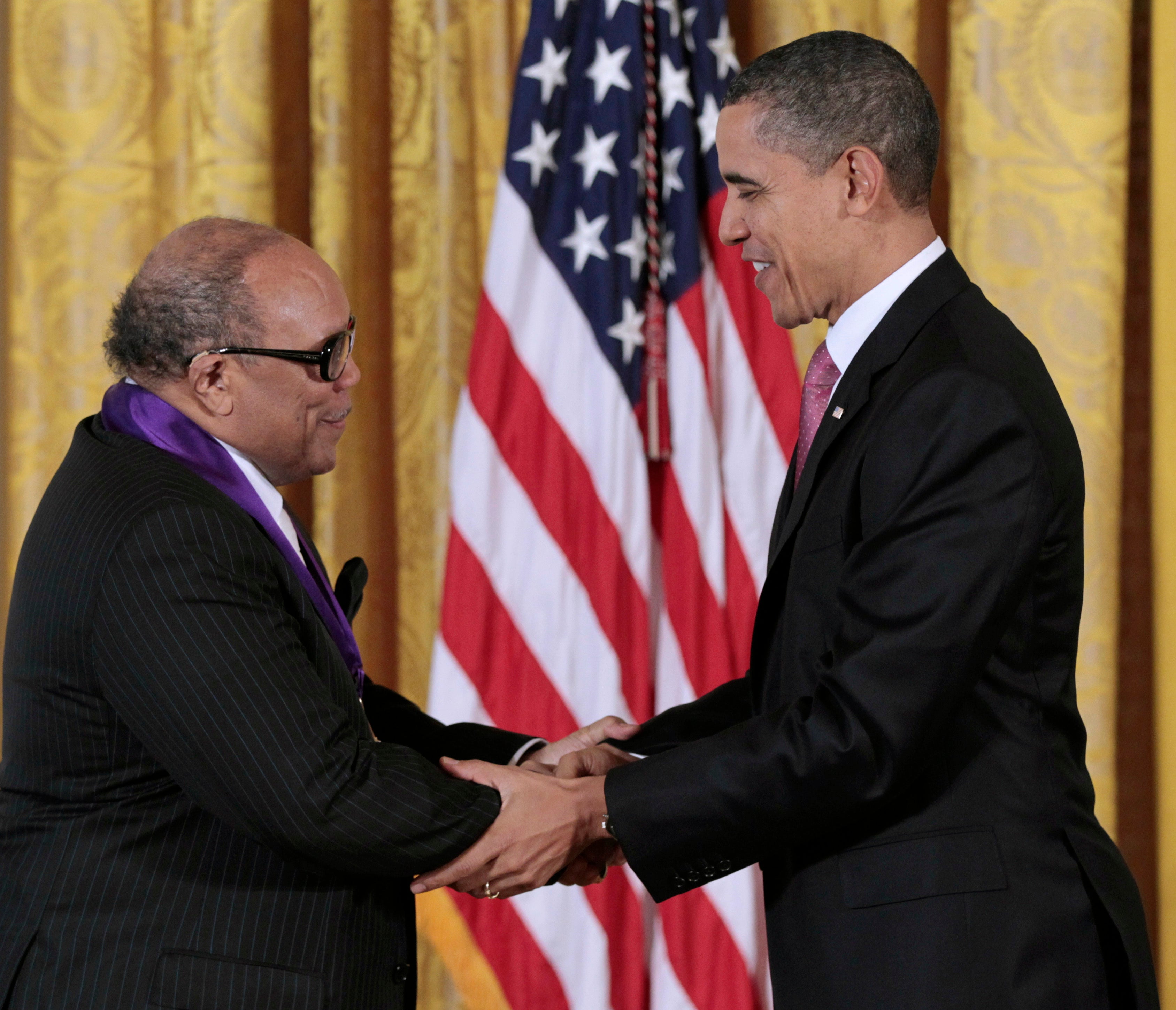
After a disastrous European tour of his jazz musical, Jones went deeply into debt to cover the band’s expenses. He later told the LA Times that he came close to suicide but “learnt a lot” from the experience. He managed to get back on his feet with help from Mercury Records president Irving Green, who gave him a personal loan along with a job as the label’s music director. Among the artists he worked with as a producer and arranger while at the label included Peggy Lee, Ella Fitzgerald, Dinah Washington and Sammy Davis Jr.
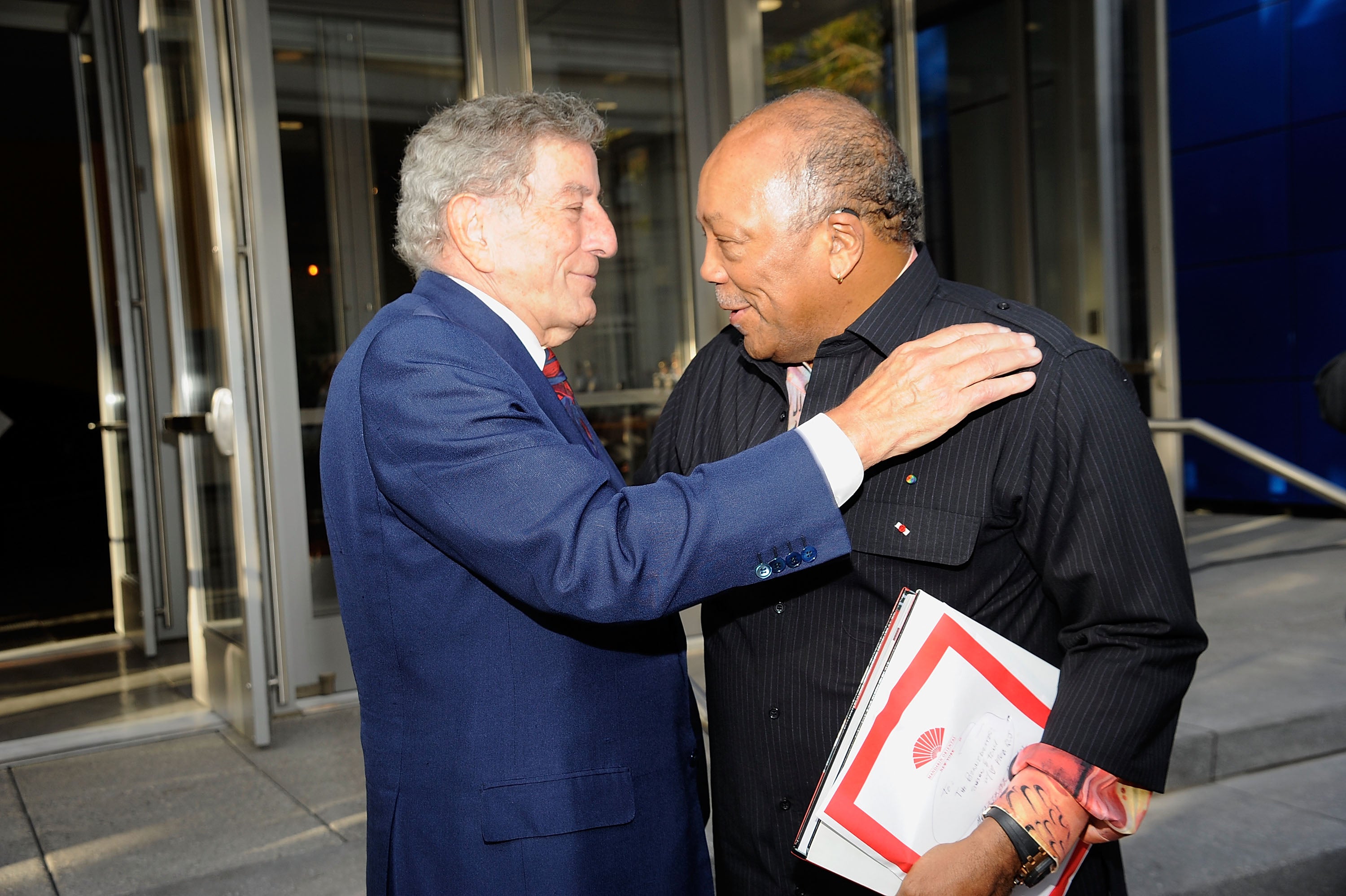
He mingled with movie stars and presidents, foreign leaders and philanthropists, scoring films including The Italian Job and Steven Spielberg’s The Colour Purple, the latter which he also produced and helped earn 11 Oscar nominations in 1986. This was in the middle of one of Jones’s most prolific decades, as he helped transform Jackson from child star of The Jackson Five to the “King of Pop” with hits such as “Billie Jean”, “Thriller”, “Don’t Stop ‘Til You Get Enough”, “Bad”, and “Beat It”.
Enjoy unlimited access to 100 million ad-free songs and podcasts with Amazon Music
Sign up now for a 4 month free trial (3 months for non-Prime members)
Enjoy unlimited access to 100 million ad-free songs and podcasts with Amazon Music
Sign up now for a 4 month free trial (3 months for non-Prime members)

With the duo’s fusion of disco, funk, rock, pop, R&B and jazz, they launched Jackson as a music icon and influenced generations of artists to come. Thriller sold more than 20 million copies in 1983 alone and remains one of the biggest-selling albums of all time.
“If an album doesn’t do well, everyone says ‘it was the producers fault’; so if it does well, it should be your ‘fault,’ too,” Jones said in an interview with the Library of Congress in 2016. “The tracks don’t just all of a sudden appear. The producer has to have the skill, experience and ability to guide the vision to completion.”
Jones’s list of honours filled 18 pages in his 2001 autobiography, Q, and included France’s Legion d’Honneur, the Rudolph Valentino Award from the Republic of Italy and a Kennedy Center tribute for his contributions to American culture. He was the subject of a 1990 documentary, Listen Up: The Lives of Quincy Jones and a 2018 film by daughter, Rashida Jones.

Asked by The Guardian about the artist who’d impressed him the most over his lengthy career, he simply rattled out a list of some of the most illustrious figures in music: “It’s just a little list. Oscar Peterson, Charles Mingus, Roland Kirk, Dizzy Gillespie, Miles Davis, Clifford Brown, Sarah Vaughan, Billie Holiday, Ella Fitzgerald, Louis Armstrong, Kenny Clark, Lionel Hampton, Duke Ellington, Tony Bennett, Diana Ross, Lena Horne, Ray Charles, Frank Sinatra, Gene Krupa, Louis Jordan, Dinah Washington, Andy Williams, Billy Eckstine, Charles Aznavour, Aretha Franklin... It’s ridiculous, man.”
He said this was his “long-winded” way of saying it was impossible to choose: “You can’t compare Lesley Gore with Frank Sinatra, or Michael Jackson with Ray Charles.”
He had a story about everyone and everything, whether about the time Jackson’s snake, Muscles, wrapped himself around Jones’s leg in the recording studio or the time his daughter was bitten by the King of Pop’s chimp, Bubbles.
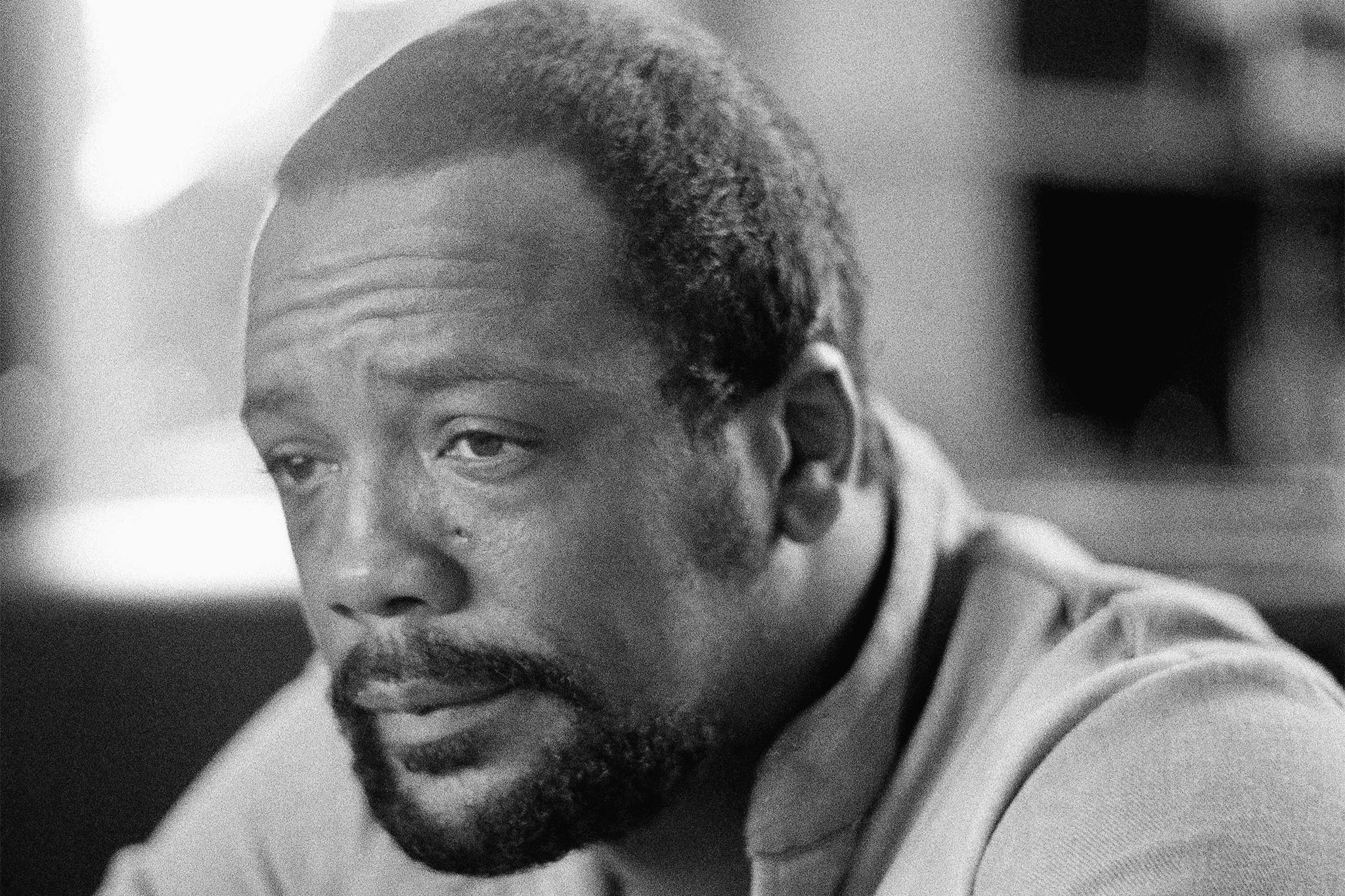
He once said he never saw “anything” like Sinatra during a live performance: “He was like a magician, from another planet. He had it down. The most magical thing I’ve ever seen in my life,” he told The Guardian in a 2014 interview. He also called him “one of the greatest friends” he ever had and wore the crooner’s ring, bearing his family crest from Sicily: “I’ve never taken it off.”
Many of his best collaborators became lifelong friends. He stayed close to Sir Michael Caine, with whom he worked on the classic Sixties movie, The Italian Job, celebrating birthdays and special occasions. In 2006, Caine presented Jones with a lifetime achievement award at the sixth annual BBC Radio Jazz Awards, where the musician returned to his roots by conducting a big band in some of his own arrangements.
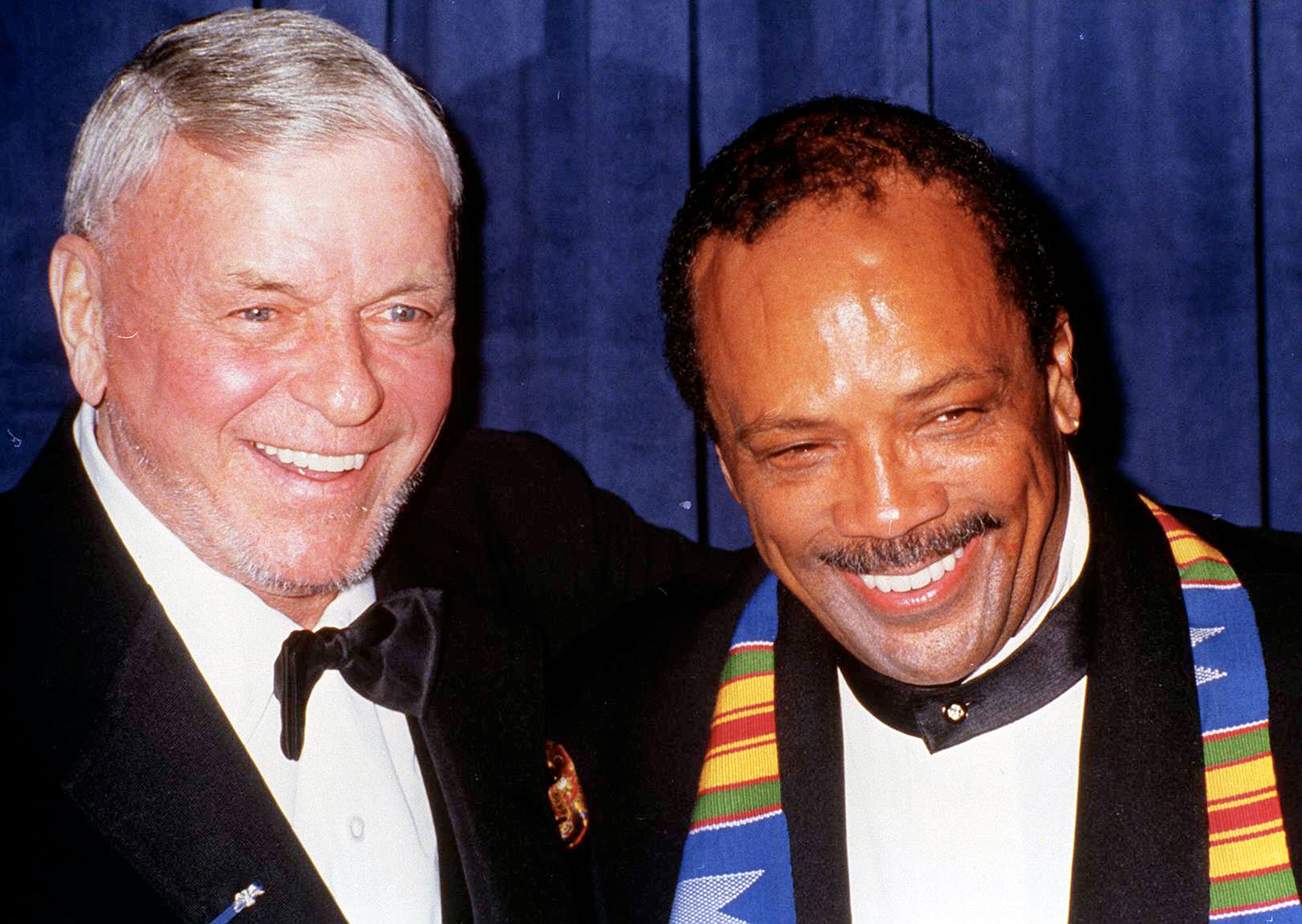
“Jazz is the classical music of pop music,” Jones told the audience. “In 40 years’ time, people such as [Count] Basie, Duke [Ellington], [John] Coltrane and Miles [Davis] will be mentioned alongside Bach, Beethoven and Stravinsky.”
He was married three times, first to his high-school girlfriend Jeri Caldwell – with whom he shared his first child, Jolie – for nine years until 1966. He had a son and a daughter with second wife Ulla Andersson, to whom he was married for seven years until divorcing her to marry Twin Peaks star Peggy Lipton. They had two daughters, including actor Rashia Jones, before divorcing in 1989.
Jones never remarried but had two other children, Rachel and Kenya, with dancer Carol Reynolds and actor Nastassja Kinski, respectively. He is survived by his seven children.

Join our commenting forum
Join thought-provoking conversations, follow other Independent readers and see their replies
Comments